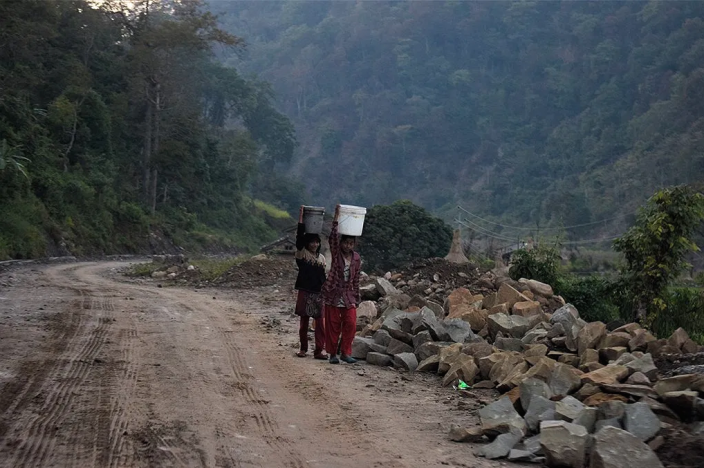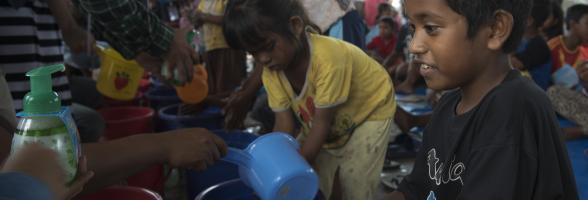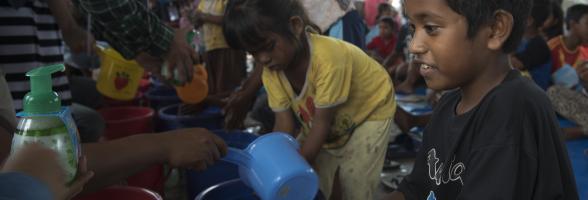The outbreak of the novel coronavirus COVID-19 has triggered a global emergency and an unprecedented risk to public health. As the pandemic unfurls with an increasing number of cases and rising death toll, it underlines the imminent crisis facing the most vulnerable communities in river basins of South and Southeast Asia confronting a range of issues including access to and quality of water – prerequisites for an effective response. For these communities, the experience of living with these challenges could mean a matter of life and death.
The South Asia region, home to nearly 2 billion people - almost one-fourth of the global population- is now under complete lockdown. Of this, over 630 million people live in The Ganga Brahmaputra Meghna (GBM) Basin, the world’s most populous river basins. TROSA and partners are currently working in some of the sub-basins like Mahakali/Sharda, Teesta, Saralbhanga, Meghna, and lower Brahmaputra.
The South Asia region also has the most significant number of chronically poor people in the world, an estimated 135-190 million. For these poor people, there are no safety nets to survive the economic stresses brought on by COVID-19. With some of the densest population centers in the world, it faces exceptional risks and challenges in pandemic mitigation efforts.
Amidst the deepening health calamity, emerging media reports from the region uncover the plight of these communities living below the poverty line. Many migrant worker returnees are stranded at the locked-down border points between Nepal and India, with both countries stopping their citizens from crossing over. Some were arrested for swimming across the Mahakali to get home.
Likewise, Bangladesh, with its 170 million people, faces challenges in the enforcement of mitigative measures like 'social distancing' and the efficacy of 'handwashing' will largely depend on the availability of fresh potable water, a scarce resource.
This situation stresses the importance of freshwater as a valuable resource and exposes increasing water security issues, and it's regional dimensions. It is estimated that 22 of 32 cities in India face daily water shortages. Likewise, Nepal and Bangladesh, with abundant water supplies, face a lack of capacities to harness available water resources. It brings to the surface critical concerns surrounding water governance, fair use, and the need for a people-centric basin-wide approach to its management.
The transboundary nature of the virus outbreak calls for a regional-level outlook and multi-stakeholder collaborative response to the crisis. The commitment of the SAARC member states to establish the COVID-19 Emergency Fund is a highly commendable response that needs swift and decisive actions that collectively address existing socio-economic inequalities and ensures that no one is left behind. This crisis also provides a window of opportunity for pandemic-centric regional cooperation mechanisms to further foster related and pressing issues of transboundary water governance and climate change.
TROSA expresses its solidarity with the national, regional, and global responses to this extraordinary emergency and draws attention towards the wellbeing of the families living in South Asia's most vulnerable regions for collaborative action to ensure safe access to water, rights to food, sanitation, and hygiene.
TROSA, as the only currently active transboundary regional water governance initiative in South Asia, urges:
- Prioritising the need for ensuring water security plans for riverine communities who live in remote and often difficult to reach areas.
- Ensuring that the participation of local communities in the decision making processes is an integral part of the COVID-19 response so that at-risk communities' rights and access to water are not compromised in meeting the increasing water demands of the urban centers.
- Promoting proper handwashing and social-distancing practices to check the exposure of vulnerable communities to pathogens.
- Engaging with the civil society and communities to ensure that their voices are heard in determining crisis response plans. Supporting local groups and community response is crucial at this time of border closures.
- Providing financial safety nets and cash-based assistance in addition to food, medical supplies, and daily necessities to vulnerable communities.
- Delivering an equitable and gender-sensitive relief assistance and ensure that the gendered impacts of the COVID-19 crisis are not ignored.
- Improved regional cooperation in water governance-related issues.



